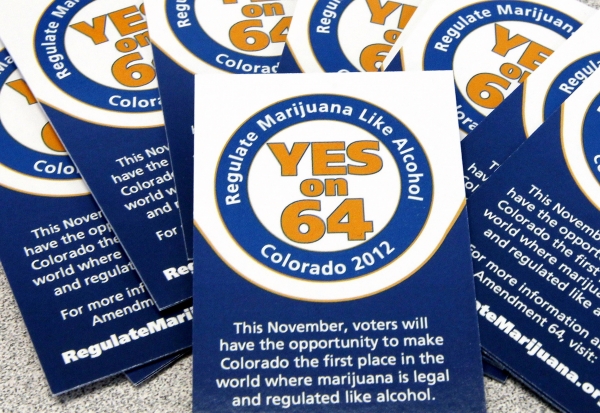On Election Day, Colorado passed Amendment 64, effectively legalizing marijuana for recreational use for adults over the age of 21. This unprecedented action could be the first of many that could ultimately lead to a nationwide legalization of marijuana.
Over the past few years, states like Colorado and California have become more and more lenient about marijuana use, passing bills that decriminalized it and opened it up for medicinal purposes. But earlier this month, the Colorado voters took this leniency one step further by opening it up for recreational use.
Amendment 64 does, however, establish guidelines for this new recreational use. Users must be at least 21 and can only have at most one ounce in their possession, which must be bought at state-licensed stores. Growing marijuana plants will be permitted, but growers are limited to six plants per person.
Although the amendment passed, it still is in direct violation of federal laws banning the substance, which could result in a lawsuit by the federal government. Colorado Governor John Hickenlooper explained, “Don’t bring out the Cheetos or goldfish too quickly,” but he reaffirmed that Colorado would do what it could to follow through with this law, although it remains unclear whether or not the federal government will take any action against it. Amendment 64 will not go into effect for at least a few more months, but it could possibly take a full year.
But why legalize marijuana at all? Well, marijuana is the country’s largest cash crop, with production valued at about $35.8 billion, exceeding the combined value of corn and wheat. This means that a good deal of American money is being redirected into the growing drug war in places like Mexico.
Another reason for passing the bill lies in the already widespread abuse of the medicinal marijuana program, where dispensaries are accused of being too liberal with their distribution of pot to “patients.”
Although it alters a lot in the state, the law will not change the fact that driving under the influence of marijuana is illegal (even though studies have shown that marijuana does less to impair driving than alcohol). It also does not take away the right of companies to drug test their employees, so employers themselves will keep the right to ban the substance from their employees.
Demand for the herb will always exist in the America, therefore stopping its flow into the country will remain almost impossible, and instead of employing futile efforts to eradicate marijuana, voters from the state of Colorado instead decided to maximize its benefits on their state. Part of Amendment 64 states that the first $40 million received from the tax will go directly to funding public schools in Colorado, which no doubt helped to pass the Amendment. With the state now in control of marijuana, it can be more closely regulated and taxed than would be possible under its previously illegal status.
The state could bring in an estimated $24 million alone in excise tax, not to mention the additional state sales tax. This legislation will create jobs, generate revenue, and keep state funds from being squandered through the prosecution and imprisonment of petty “possession” criminals. Police officers will instead be freed to deal with more serious affairs, and Colorado will not have to spend the estimated $12 million per year on criminal justice costs.
Though the bill just recently passed, the entire country could very well follow suit over the next few years. In time, the prohibition of marijuana may be seen like the prohibition of alcohol in the 1930’s, but only time will tell how our government leaders will respond to this monumental action.






